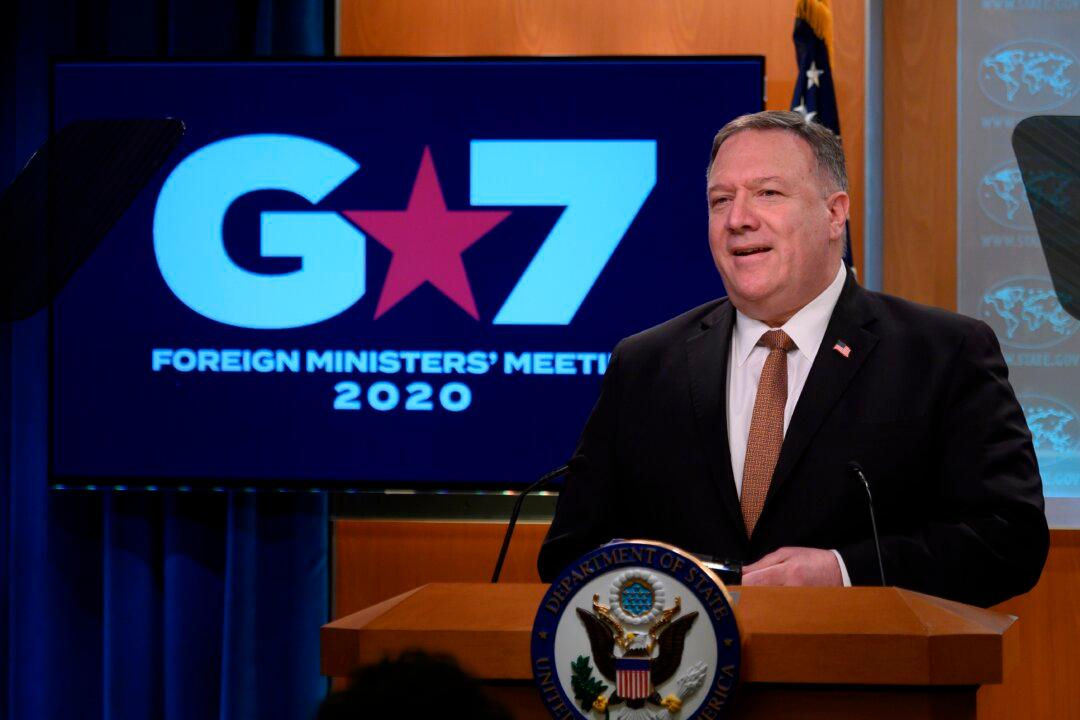All Group of Seven (G-7) foreign ministers on June 17 issued a joint statement calling on Beijing to reconsider imposing the Chinese Communist Party’s (CCP’s) so-called “national security” legislation on Hong Kong.
Beijing’s rubber-stamp congress bypassed Hong Kong’s local legislature in late May to enact the legislation that would criminalize activities connected to subversion, succession, terrorism, and foreign interference.





